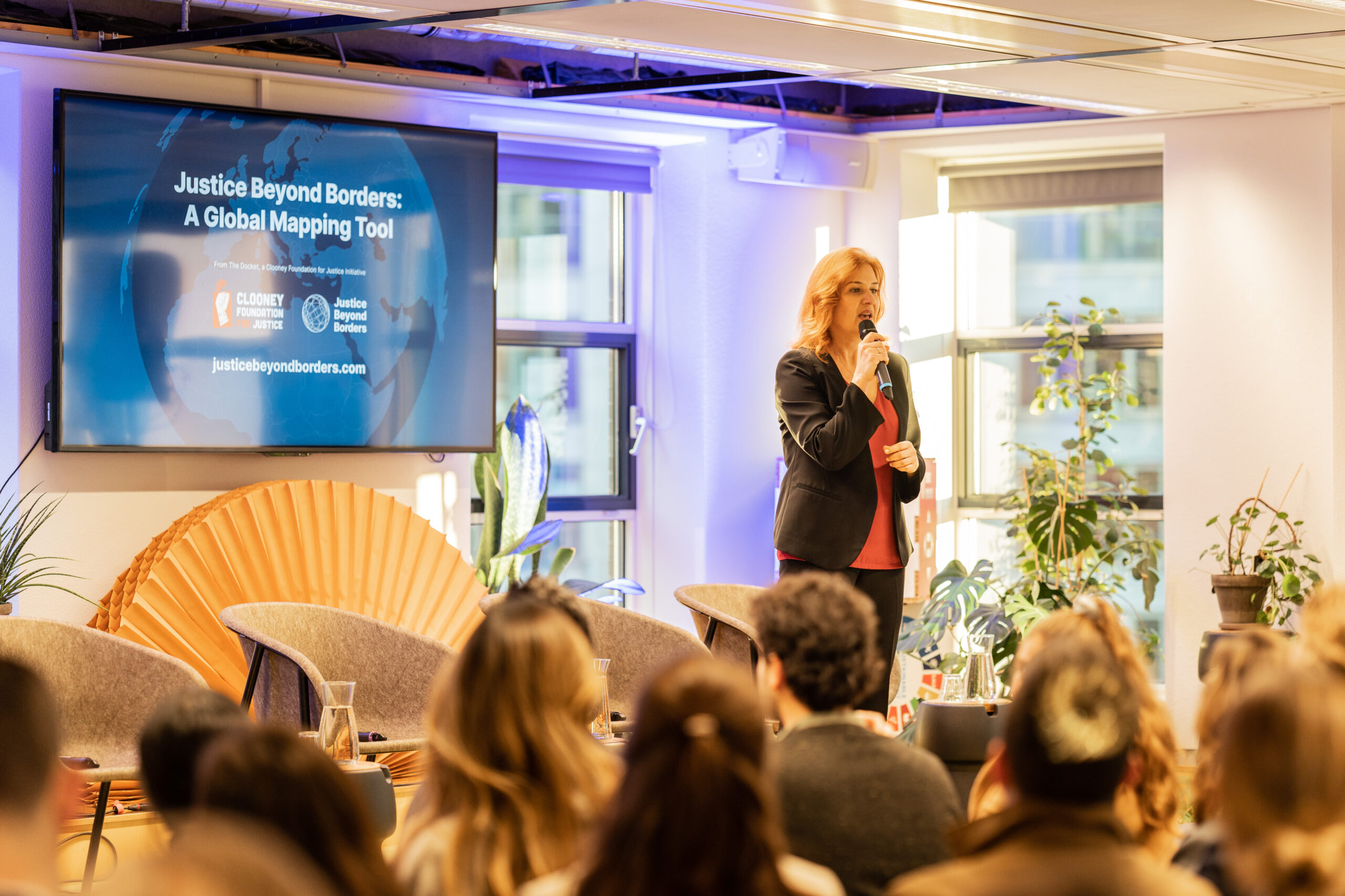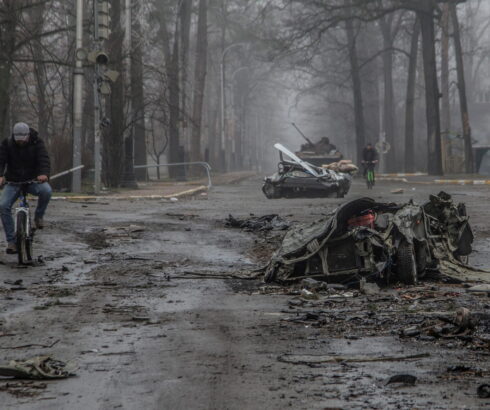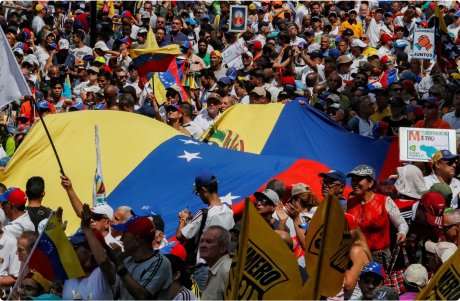Past Work
This page contains information about work that was completed by CFJ prior to 2025. For more information on our current programs and events, read more about TrialWatch, Waging Justice for Women and The Albies.
How can the world wage justice for atrocity crimes when perpetrators seem so hard to reach? To provide an answer to this question as well as a clear way forward, the Clooney Foundation for Justice launched the Justice Beyond Borders Project (the “JBB Project”) – an online tool that shows how existing laws around the world can be used to access justice.
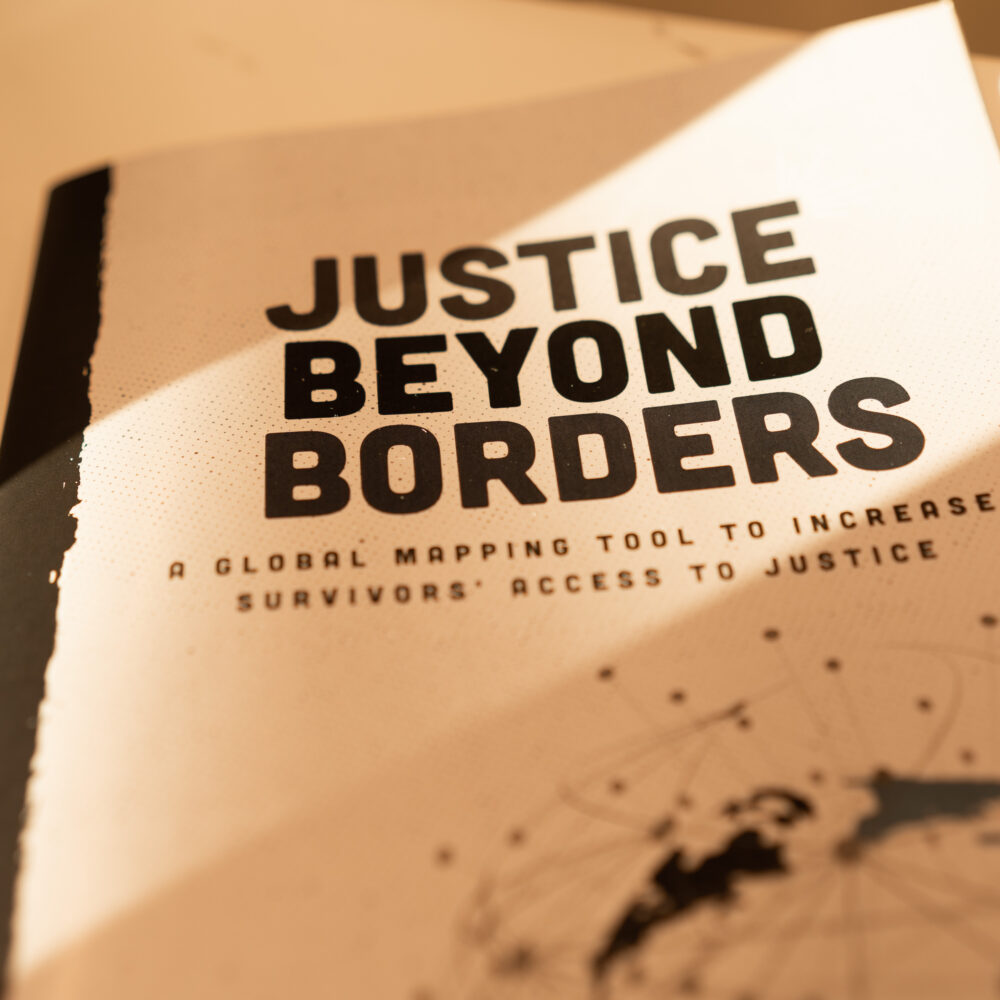
More than a database…
Justice Beyond Borders (JBB) is a mapping project of national laws on the most serious international crimes across 193 UN Member States.
The JBB Project seeks to help all survivors understand where and how they can access justice and ensure that perpetrators have nowhere to hide. Achieving this means mobilizing as many countries as possible to adopt the laws that would allow them to investigate and prosecute the most serious international crimes, to ensure that survivors know and can exercise their rights, and to ensure that such laws are consistently and effectively implemented. Only then will accountability become the norm and impunity the exception.
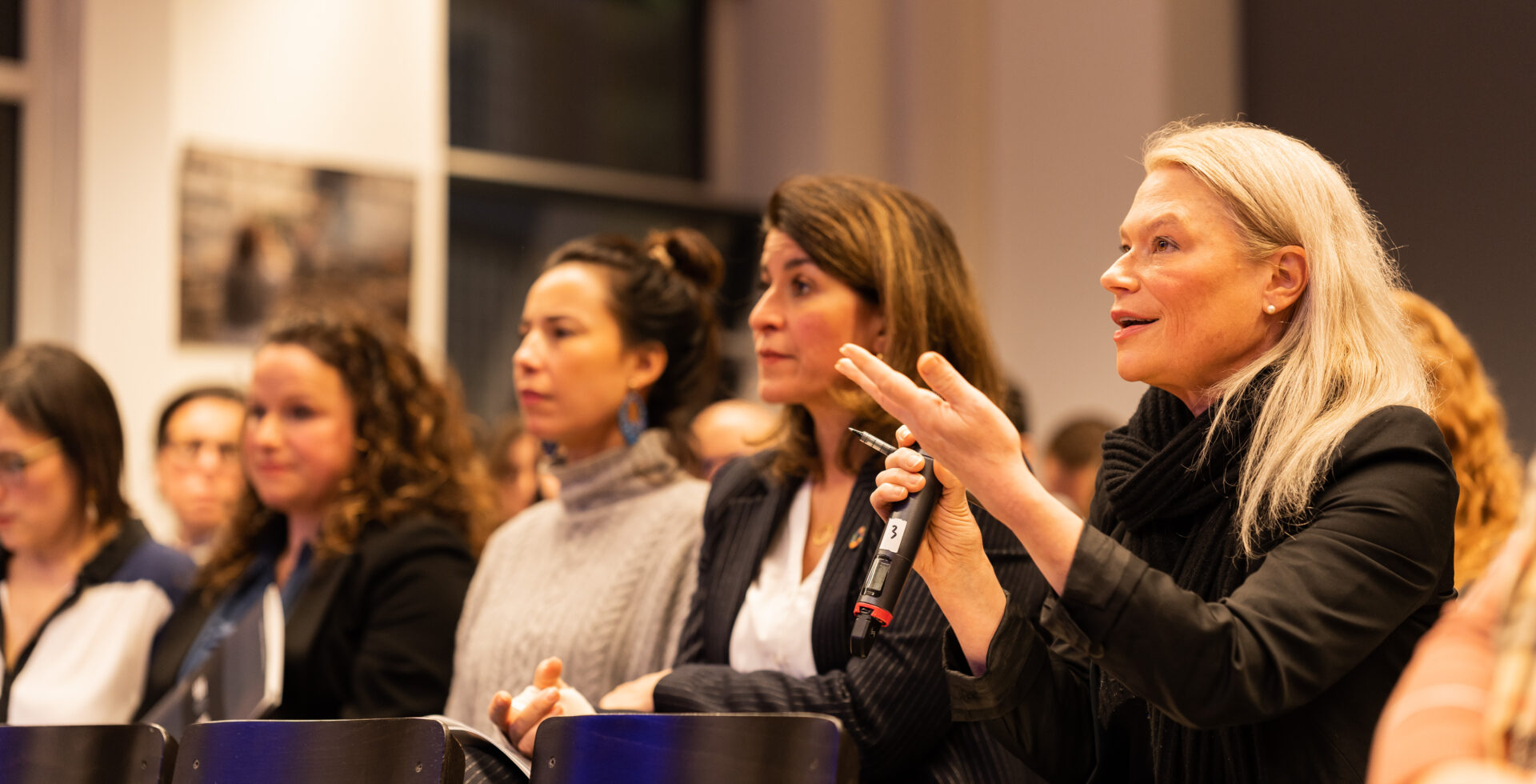
The principle of Universal Jurisdiction (UJ) allows countries to prosecute the most serious crimes regardless of where they have been committed.
UJ has been developing since the Second World War as a mechanism to pursue justice for survivors and victims of mass atrocities. The ability to investigate and prosecute alleged perpetrators for crimes committed beyond a country’s own borders has been gaining momentum in the past three decades, with the numbers of investigations and prosecutions steadily increasing and more countries than ever embracing the need to combat injustice.
The JBB Project indicates that 28 UN Member States allow for the investigation of at least one of the most serious international crimes under absolute universal jurisdiction.
This means countries can investigate and prosecute a person suspected of committing a serious international crime regardless of their nationality, the nationality of the victim, the location where the offence was committed, or the location of the suspect.
In many countries, however, laws granting jurisdiction for crimes committed beyond the country’s own borders are subject to conditions that limit their application including one or more of the following:
- That the perpetrator be present in the country
- That the perpetrator be a national or resident of the country triggering the trial
- That the victims be a national or resident
- That the case is in the national interest or state security
- That they have an obligation under international law to trigger a case
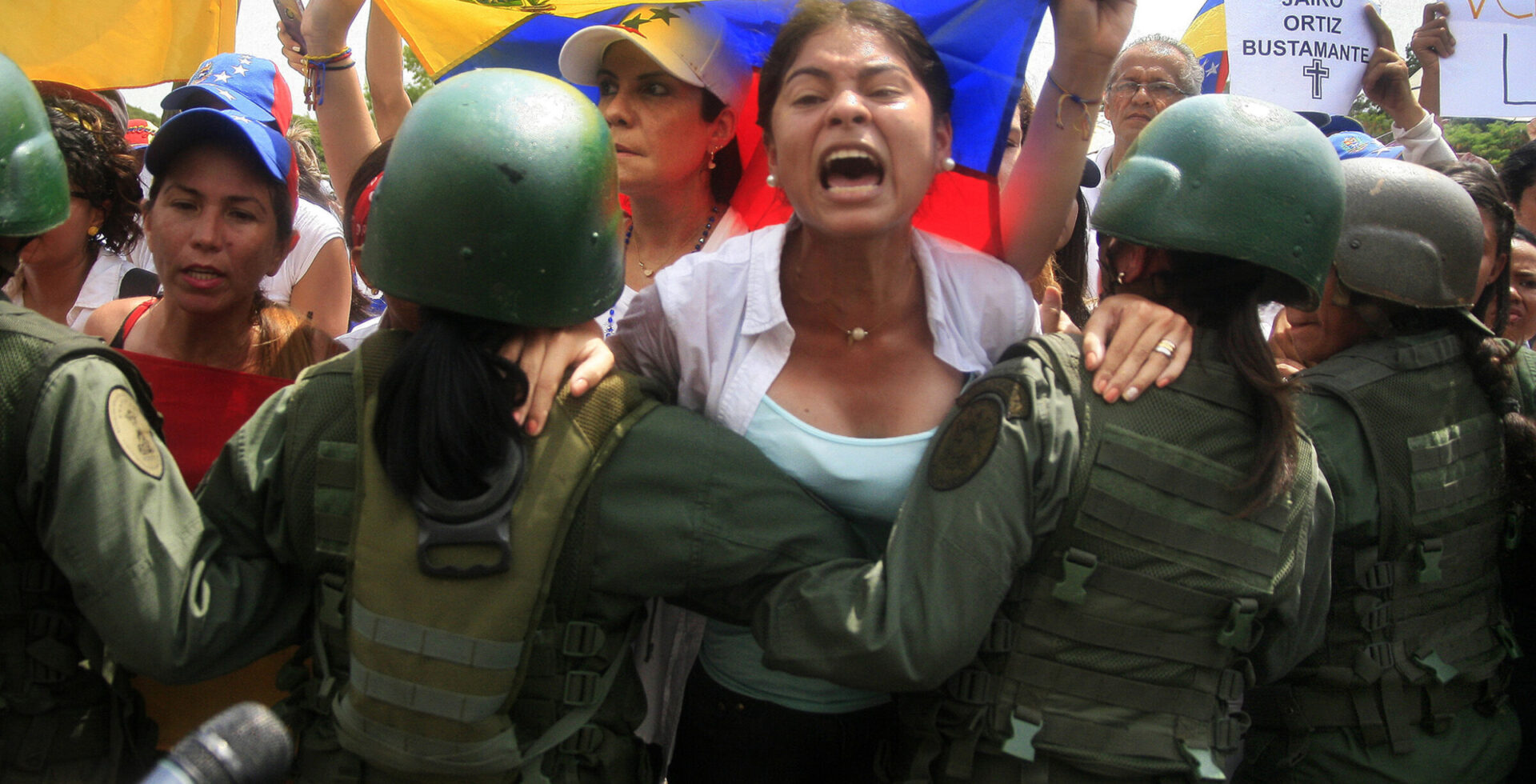
The Justice Beyond Borders Project is seeking to address these challenges by providing updated and comprehensive review of legislation on international crimes across the world and looking at how those laws could be used to wage justice.
UJ has empowered survivors of atrocities to become the driving force behind prosecutions of the international crimes they have suffered.
This trend is due, in part, to recent conflict-related displacement from Afghanistan, Syria, Iraq, and Ukraine leading to millions of survivors and witnesses going to European and other countries. In some situations, national prosecutions in countries where they sought refuge are their only chance to obtain justice, and they have actively provided information to law enforcement agencies, which sparked successful investigations, arrests, and trials.
The Docket played a role in supporting some of those survivors through its projects in the DRC and Venezuela. As countries become more engaged with the idea of universal justice, global networks are forming such as the European Network for investigation and prosecution of genocide, crimes against humanity and war crimes (“Genocide Network”) within Eurojust. Civil society is playing its part, investigating possible war crimes as they occur and presenting this evidence to law enforcement and international courts such as the ICC.
The Docket investigated possible international crimes in Ukraine and the evidence our team gathered contributed to accountability efforts by the ICC and domestic courts.
The potential for prosecuting international crimes in national jurisdictions has been undermined by a number of challenges which must be addressed in order to achieve effective and equal access to justice for survivors of mass atrocities in practice.
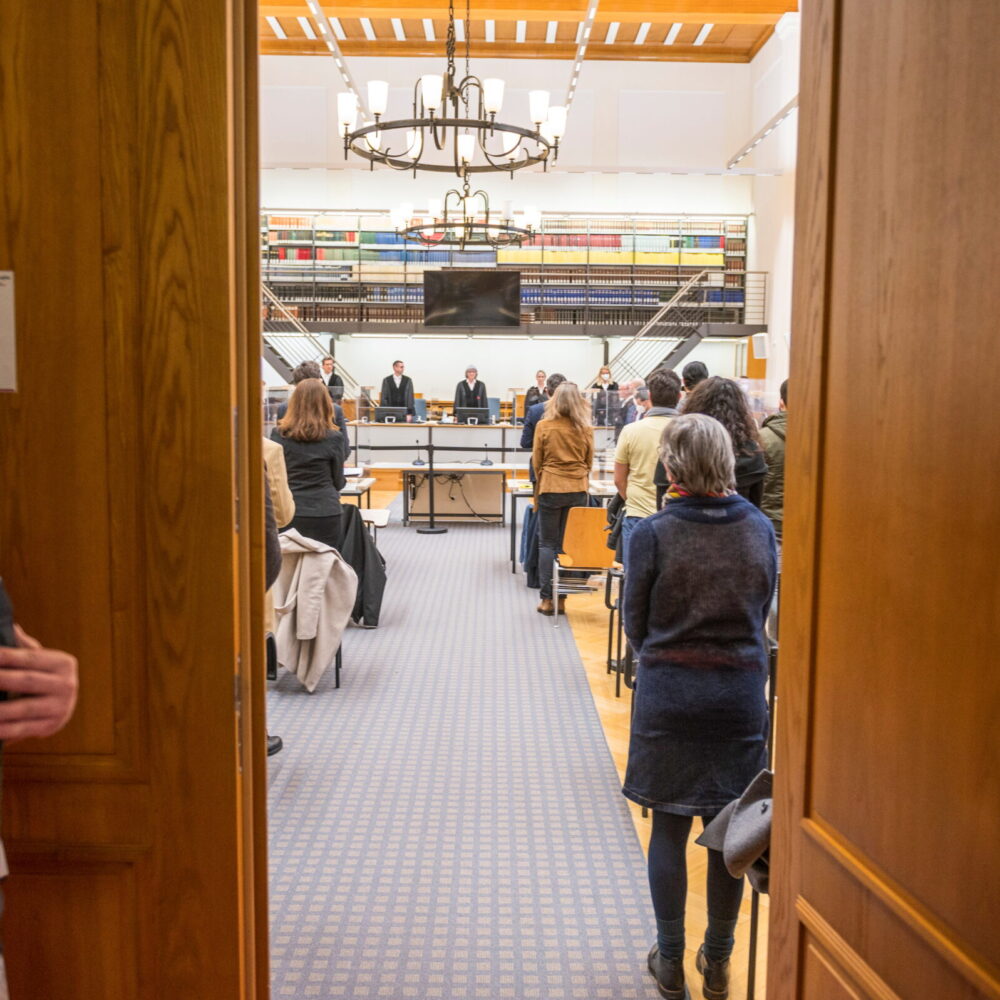
One of the key barriers is the legal limitations which effectively make “universal jurisdiction” much less universal.
Forty countries have not yet criminalized a single international crime or recognized any form of jurisdiction over such crimes committed abroad, while others have significant restrictions related to the status or location of the victim or perpetrator. For example, France has subjected offences outlined in the Rome Statute to narrow jurisdiction provisions that require the alleged perpetrator to be living in the country or the victim to be a French national, making it very hard to seek justice against perpetrators of international crimes in domestic French courts.
Lack of political support will often impede the opening of universal jurisdiction investigations, as does lack of capacity and expertise.
Many countries and territories are hesitant to spend limited resources on lengthy investigations of crimes that did not directly affect their country or people. In other cases, they may face political pressure from other countries and territories not to carry out prosecutions at all. A major criticism of international justice processes, including those at the national level, is selectivity: so far, most investigations and prosecutions have been conducted in Europe against perpetrators from the Global South.
The lack of prosecutions of suspected Western perpetrators undoubtedly undermines the universality of the system.
The JBB Project is seeking to address these challenges by providing updated and comprehensive review of legislation on international crimes across the world and looking at how those laws could be used to wage justice.
153 153 out of 193 UN Member States have criminalized at least one of the four most serious international crimes: genocide, crimes against humanity, war crimes, and the crime of aggression.
20 And yet only 20 have initiated cases relating to these crimes in the past 30 years.
170 Across all 216 jurisdictions analyzed in this project, 170 jurisdictions criminalize at least one of the four crimes.
142 War crimes are the most widely criminalized, with 142 UN member states and 55 of the jurisdictions analyzed criminalizing them.
However, 148 UN Member States have laws that allow them to investigate and prosecute at least one of these crimes even when the crime was committed beyond their own borders.
Only 20 countries have actually used existing laws to launch investigations and prosecutions over the last three decades.
Less than half of the prosecutions have resulted in a conviction. Argentina and Germany have actively made use of their absolute universal jurisdiction provisions. In a 2021 case, a German court found a member of ISIS guilty of genocide, crimes against humanity, and war crimes under absolute universal jurisdiction: the defendant was not a German national nor resident, the victims were not German, and the crimes had not been committed on German territory.
This must change—and Justice Beyond Borders project can help achieve that change.
